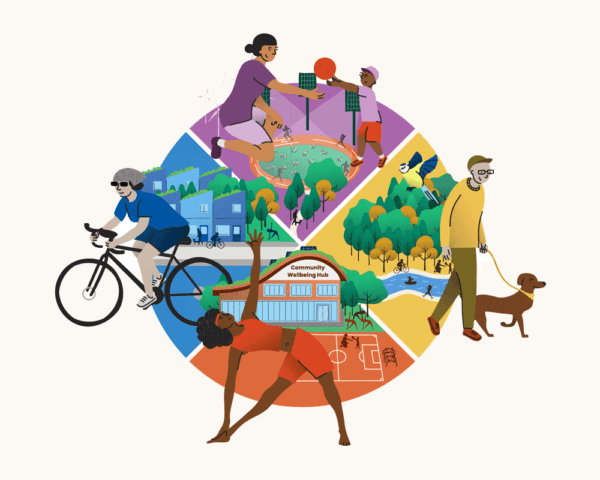Having studied Architecture at the University of Nottingham, Lauren Chapman was a Part I Architectural Assistant before joining the Useful Simple Trust (UST) for a four-month long Internship. After learning more about the day-to-day role as a Sustainability Consultant, she shared her insight into discovering where her skillsets lie:
My initial interest in architecture derived from a research project in zero carbon homes whilst in sixth form. This is when I first heard of the Governments ‘Code for Sustainable Homes’ commitment that, from 2016, all new houses would be ‘zero carbon’ and generate as much energy on-site as they would use, which was to be scrapped that year. With the promise for a renewed policy repeatedly being pushed back, I developed a growing concern for industry inaction. Having studied Art, Maths, and Physics at A Level, I felt architecture was a way for me to combine my interests and tackle this problem directly.
When I was an Architectural Assistant at Mikhail Riches, I worked with Expedition Engineering on a Passivhaus and retrofit project. I had considered a career in sustainability, and was keen to expand my knowledge, so I applied for an internship at UST to understand more about the day-to-day role of a Sustainability Consultant. The application process was straightforward and involved answering two questions and sending a CV.
Learning new skillsets
My time at UST has been immeasurably valuable. Being split across Useful Projects and Expedition, I have undertaken several projects in the Sustainability Consultancy and Civils & Masterplanning teams respectively. This has varied from drafting supporting strategies for an ESG report, aiding the planning and delivery of an Environmental Action Plan workshop, to taking on the unofficial role of Design Lead for the Trust’s submission to The Gingerbread City Competition!
I have been able to integrate my existing knowledge of the built environment within the consultancy, most notably working on a climate change risk assessment for Network Rail, an overheating review for an exemplar sustainable masterplan for a new neighbourhood in Cambridgeshire, named Hartree, and guidance for a sustainable fit-out specification for Northstowe Community Centre.
Gaining experience at an entry-level
Everybody has different areas of expertise across the Trust, originating from different educational backgrounds and experience, to creating a positive learning culture. New starters are encouraged to share relevant research, thesis projects or experience with the rest of the Trust as a ‘Useful Tuesday’ – a weekly internal CPD presentation.
One of my proudest and most enjoyable moments was leading a Useful Tuesday with the design team from Expedition, highlighting key challenges from across architecture, sustainability, civils, and structural engineering disciplines. The discussion encouraged cross-fertilization of information and increased awareness of the complexities faced at RIBA Stages 2-3 in an increasingly demanding planning context. I was told that, as a multidisciplinary business, it helped to hear the problem-solving involved from all disciplines as each consultant sees the project through a different lens.
Working at UST has strengthened my understanding of holistic sustainability, which I wouldn’t have been able to achieve in the same way solely working as an Architectural Assistant. Temporarily stepping away from architecture has also allowed me to evaluate what I enjoy about the profession and whether my passions can be fulfilled as a Sustainability Consultant. An internship provided me with the opportunity to gain experience at an entry-level and helped me to conclude that I want to continue my qualifications as an Architect and integrate sustainability more closely in my career.
A positive learning culture
I have immensely enjoyed my time at UST – there is a great workplace culture, and they are truly paving the way for change in the industry. My Line Manager, Gabriela Costa, and assigned Buddy, Anna Biggs, helped me figure out what my key interests were and ensured that I got the experience I wanted, making me feel valued as an individual and appreciated for my personal skillset.
For anyone considering an internship, my advice would be to look out for those able to offer a range of experience, so that you can find an area that interests you and be allocated projects suited to your strengths.
Lauren Chapman







